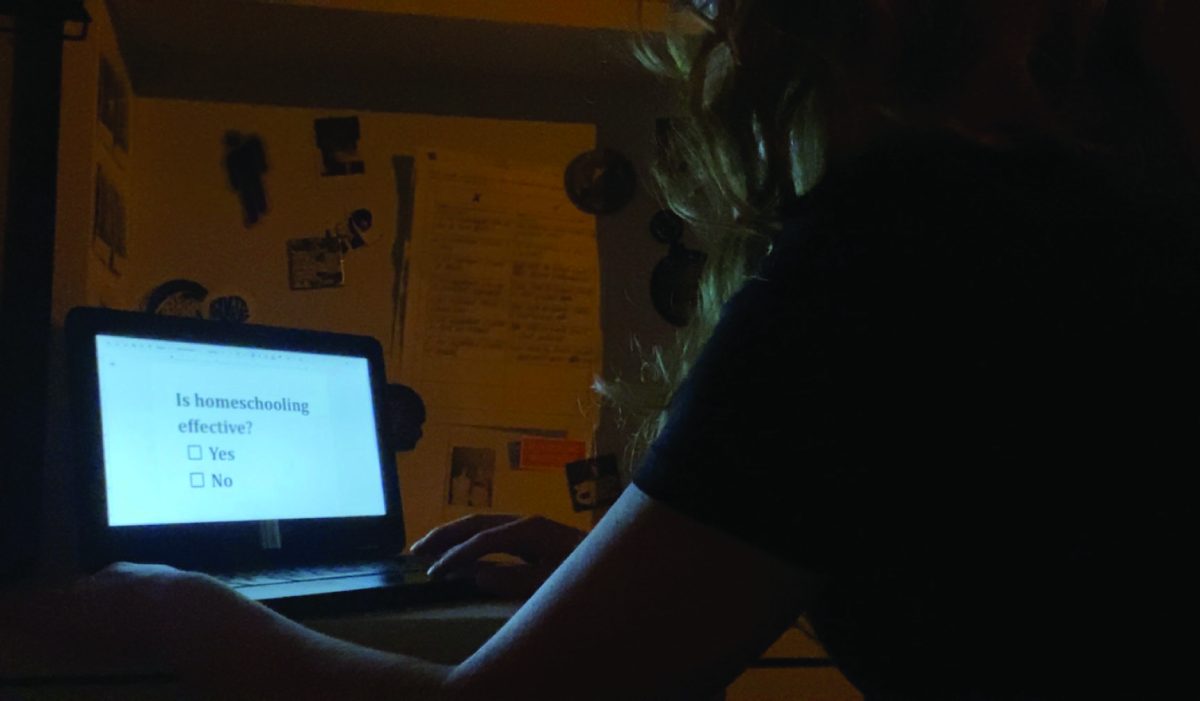Denied: Navigating the path of college rejection can be difficult, but school counselors are here to help

March 2, 2020
Imagine that a genius high school student just applied to their dream college, spent $80 on an application fee, put an abundance of time and effort into writing a long essay, just to eventually receive a letter in the mail that states that the college rejected their application. The student is devastated and shocked, not knowing what to do, nor how to think. They know that there is a plethora of other colleges to choose from, but there was one specific school they had their eye on, and now it’s shoved out of the picture. The student doesn’t understand why a college would reject such a genius like them. They feel as if there’s only one reason why they were rejected — they’re not a genius after all, and they must be a failure, which of course, isn’t true. The student’s heart rate, depression and anxiety levels dramatically increase. As they cry themself to sleep that night, they feel as if their college dreams, hopes and goals have sunk to the bottom of the never-ending pit of college rejection.
When students first hear that they were denied admission to a college, they may feel overwhelmed with a mix of emotions, and may not be sure what to do. Jennifer Bass is one of the school counselors at Lincoln Southeast High School who are more than willing to help students through the difficult process of college admissions.
“[Students need to] make sure that [they] reach out and ask their school counselor for help. See your school counselor, because we are happy to get on the phone to that college and say, ‘Will you look at [their application] again?’ ‘What do they need to do?’” Bass said. “If [they] do get denied admission, don’t give up on college. There’s other colleges out there, and school counselors or [the] EducationQuest [Foundation] will help [students] see what [they’ve] already taken that would fit to another college.”
Receiving a rejection letter does not mean it’s the end of the road. There are other options to choose from, such as finding similar schools to apply to, or gathering some credits at a two-year community college, and then transferring to a four-year college or university. There are plenty of available resources out there for students to help them make the best decisions regarding college.
“When it comes to [making decisions about college], in our school, [students’] two best resources are school counselors, and EducationQuest is here every Wednesday, so [there] are people here that want to help [students] get to the next level if [they] get stuck,” Bass said. “[Students should] just make sure that [they] reach out, because we do have the resources here to help [them]. If [they] want to go to college, we want to help [them] get to college.”
For students, it can be difficult to understand why their application was denied. They may feel confused, and unable to understand what they did wrong and what they could have done better.
“Most of the time it’s either because of their grades, [or] because they haven’t taken all the required classes that they needed to in high school,” Bass said. “The one that I have dealt with is kids are not taking the fourth year of math, because [they] only need three years of math to graduate from high school. So, most of the time it’s because of grades, [their] ACT score or not taking enough required high school classes to get into college.”
Another reason that students may get denied admission is that they may have applied to a more competitive school that is harder to get into.
“For some kids who are reaching towards a really competitive school, like Harvard, they already know that’s going to be hard to get into,” Bass said. “It just depends on the kids. Did they put all their eggs in one basket? Did they have all their hopes on one college, or do they have a bunch of colleges that they can look at? We talk to students about how [they] have a dream school, but then [they] also [have] a more realistic school, like a back-up school.”
With the amount of overwhelming emotions that can come with being denied admission, it’s important to know and understand how to cope with it and move on from it. According to an article by Niche titled, “Rejected by Your Dream College? Here’s How to Cope,” there are three main ways students can cope with being denied admission.
The first step to coping is grieving. Being surrounded with supportive and positive people is important in the time immediately following the bad news. Expressing feelings is very important, too. According to Jennifer Ann Aquino, author of, “The International Family Guide to U.S. University Admissions,” some of the ways students can cope include journaling, talking, listening to music, enjoying a hobby and exercising.
It’s also important for students to process the information and note that the decisions colleges make are out of their control. According to Christina DeCesare, associate director of College Counseling at Princeton Day School in Princeton, New Jersey, many colleges have unique admissions criteria. Students should try not to be too hard on themselves. Sometimes, schools might have specific high school GPA and testing requirements. If a student is well below those averages, that may be a reason why they were not offered admission. However, that is only a small piece of the application review process, and may have nothing to do with the reason they were rejected. Many schools are very selective, and being rejected does not mean the student wasn’t a worthy applicant or not intelligent enough.
According to Aquino, after students are denied college admittance, it’s important that they give themselves a little time, then try to focus on the positive aspects of college applications. This includes thinking about who has accepted them, why they’re excited about certain colleges and why they applied to them in the first place. Remembering to focus on positive vibes and good energy is important.
Being rejected from a college can be tough and hard to cope with. While coping, it’s very important for students to remember that it wasn’t their fault, and they shouldn’t take it personally. Students should stick to their passions and find the school that is best for them. There are many schools that will fit all of their requirements. When looking at other schools, it’s important to look at the activities and clubs they have available, and get involved!
“[As school counselors], we’re really here to just tell [students] not to give up, and not to give up hope,” Bass said. “We want to support them in that, but we’re also willing to be active in helping them reach out to the school that denied their admission, or just help them find another college that would be a good fit.”
With college acceptance and rejection letters piling up and this school year soon coming to an end, it’s important for students to zone-in and focus. Students should do what they believe is best for them. If they applied to their dream school and got rejected, they should remember that many other students are in the same boat and it doesn’t mean they’re unworthy. It just means that some colleges are selective, and they just weren’t the right fit for them. Students need to remind themselves that there’s other colleges to choose from, and that they’re worthy and more than enough, and the best is yet to come.









